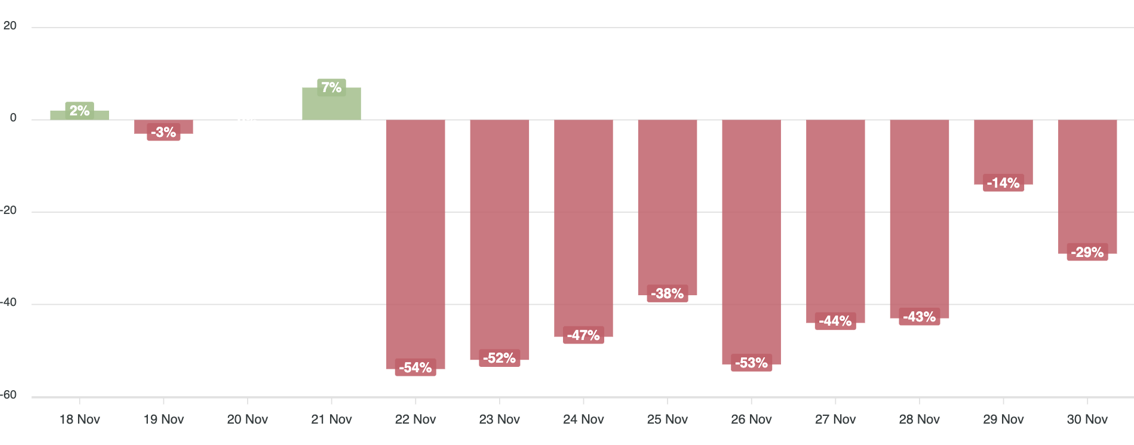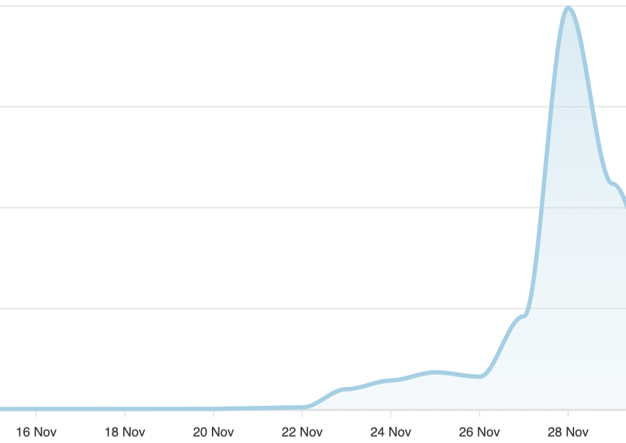A new campaign by fashion brand Balenciaga was met with backlash, protest, and to top it all off – a massive wave of disinformation and conspiracy theories. Blamed for being satanic worshippers, pedophiles, child molesters and clients of Jeffery Epstein, Balenciaga was suddenly facing a new battlefront, which required a whole new set of skills.
2022 could have been the year of Balenciaga. The luxury brand managed to appeal to buyers of all ages and styles, offering high-fashion pumps next to everyday sneakers (including ruined sneakers!), extravagant handbags next to sportswear, and a fresh, bold, mind-provoking approach to marketing campaigns. Balenciaga is popular with gen Z and Millenials, is considered to be on top of trends, and was mentioned in so many songs that it got its own Spotify Playlist – led by, you guessed it, Lizzo’s “About Damn Time” and her Balenci-Ussies.
But at the end of November, Balenciaga released a new provocative campaign featuring children holding bears in bondages. The ads were met with great outrage and caused a huge scandal. Even long-time partners of Balenciaga like Kim Kardashian expressed their disapproval and said they would be re-evaluating their relationship with the brand. After a few days of protests, outrage, and even a vandalized store, Balenciaga removed the ads and apologized publicly. Balenciaga’s artistic director also expressed his regrets for the inappropriate artistic choices. Balenciaga attempted to sue their production company but quickly dropped it.
This could have been the end of the story. Ten years ago, it might have been just that: An ill-suited, tasteless marketing campaign that went downhill. But this almost textbook PR crisis just kept snowballing, and Balenciaga suddenly found itself in a whole new territory, one that might have taken them by surprise: Disinformation.
Walk a Mile in Balenciaga’s Shoes
Here’s the part you probably guessed: during November, thousands of profiles on Facebook, Twitter and TikTok criticized Balenciaga. The reproach started on November 22, 6 days after the campaign launched.

The disapproval was expressed with anti-Balenciaga hashtags, like #BoycottBalenciaga, #CancelBalenciaga, #BalenciagaPedo, #BurnYourBalenciaga. Those hashtags also started spreading on November 22, and reached a peak of exposure on November 28, four days after Balenciaga officially apologized and removed their campaign.

The Devil (Worshippers) Wear Balenciaga
While this wave of consumer hate undoubtfully caused massive pain to Balenciaga’s spokesperson, it was still “just” a protest – a predictable response involving consumer rage. Most major brands have been dealing with similar PR crises over the years.
What Balenciaga couldn’t predict was the way conspiracy theories spreaders latched onto these protests, and used them to promote their own agendas.
Cyabra uncovered the following conspiracy theories in discussions related to Balenciaga on social during November:
- Balenciaga is in league with Hollywood to spread child pornography
- Balenciaga is a cover-up for satanic worshippers, pedophiles and child molesters
- The red shoes of one of the modeling kids in the campaign are a sophisticated code that pedophiles use to identify themselves to others and to spread their message.
- The Balenciaga’s designers were on Jeffery Epstein’s client list, and were involved in child trafficking (specifically the Balenciaga models) to his island.
Overall, conversations involving conspiracy theories or using related hashtags were engaged with (shared, liked or replied to) 631,634 times, and reached the eyes of 7,713,478 profiles. A massive number of new people that may have been ignorant or oblivious of the Baleciaga scandal were now not only aware, but also wary, concerned and suspicious of the brand.
Here are some of those posts:
Don’t Wait for the Other Shoe to Drop
Remember the false claim that vaccines cause autism? A few years ago, it was regularly ridiculed. But when Covid-19 put the world into lockdown, this old, debunked, dangerous myth was one of the causes of a massive anti-vax movement, one that governments and health organizations are battling to this very day, an ever-lasting proof of the harm of disinformation and conspiracy theories.
Even if you’re a PR crisis expert, you will need a completely different set of skills to deal with an attack of conspiracy theories. While consumer rage rises and falls like a tidal wave, here today and forgotten tomorrow, conspiracy theories are like a rolling snowball: their spreaders are insistent, persistent and determined. They look for lies, schemes and plots in every quote and photo, share them to their networks and communities, and follow their cause with total conviction. They tend to repeat their messages over and over, even dozens of years later, and all in all, they are a force to be reckoned with – one most brands know nothing about.
No one can predict which trend will be the next to attract conspiracy theorists. But if you’d like to learn how to protect your brand against them, we’re here to help. Contact us to set up a demo.


